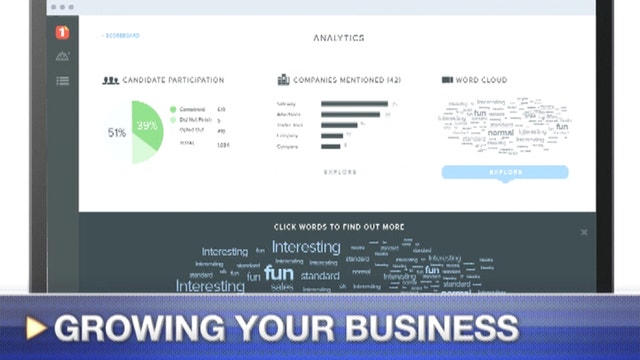Looking Beyond a Candidate’s ‘One Page’ When Hiring
Ever applied for a job and wished you could show the hiring manager that you’re more than just what your resume says?
Resumes don’t define us, says Joanna Weidenmiller, and she’s on a mission to change that.
The CEO of The One-Page Company created the 1-Page platform, which allows employers to “challenge” candidates with real-time problems during the online application process. The challenges are specific to the jobs being applied to, and she says the model helps to weed out those who are serious about the position.
“Resumes only tell the past of a person, which is never enough to predict future performances,” she says. “They also can’t tell who the candidates really are, and what they are capable of.”
The San Francisco-based startup was co-founded by Weidenmiller and Patrick Riley in 2011. Riley is the author of “The 1-Page Proposal,” a best-selling help book and the basis for the company. The company works with more than 20 multinational corporations, with 10,000 plus employees, as well as smaller businesses with between 500 and 5,000 workers.
They’ve raised $3.5 million from TMT Investments, Blumberg Capital, Georgetown Angels and Western Technology Investment, and have an additional $7 million coming down the pike in August. The company also is planning to list on the Australian Stock Exchange in the next few months, with the hopes of listing on the NASDAQ in the future.
“Going public is a different ballgame,” says Weidenmiller. “It’s all about revenues, which is great for 1-Page. My Chief Revenue Officer was a key hire as we went down the IPO road, and really allowed us to put a pricing model in that is quickly attracting companies. We are closing a lot of companies right now, and our business model is a land and expand model, so it is key that we focus on our client success team.”
As a woman in technology, Weidenmiller is also fighting the status quo. She notes that only 3% of venture capital money goes to female entrepreneurs.
“Where we struggle is with delegating. Delegating is a must for any expanding business, as you require more support across all sectors -- entrepreneurial, technical, educational and leadership development. Women are more organized today and support each other in this field like never before—I see a brighter future for women in tech,” she says.
Google recently released a dismal diversity report, by choice, highlighting the company’s desire to be more inclusive to both women and minorities. The headline was that 70% of its 50,000 workers nationwide are men. Weidenmiller says she applauds the tech giant’s transparency, and says they may be relying too heavily on internal employee referrals.
“Companies like Google grow at a very fast rate, and due to the power of their brand, are also extremely appealing for candidates. Google receives up to 70k resumes per week, which makes [it] impossible for recruiters to go through all the applications and fill the open positions in time,” she says. “[Internal referrals] certainly affect diversity because it limits company’s reach to small networks compared to the global workforce.”
Closing the diversity gap in tech needs to start with engaging candidates beyond their resumes, she says.
“Identifying qualified candidates based on their ideas, and their value proposition, certainly democratizes the hiring process and promotes diversity while stimulating engagement and motivation,” Weidenmiller says.




















